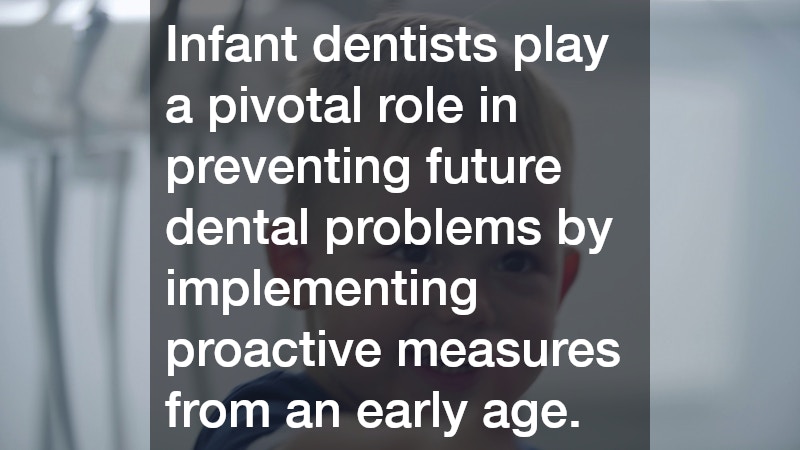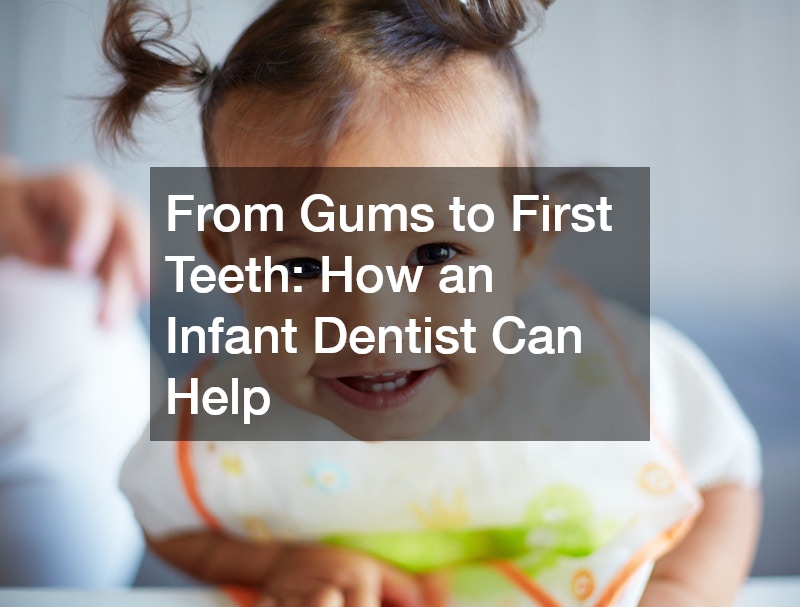
The journey from gum health to the eruption of the first teeth is a critical phase in an infant’s development. During this time, parents often have numerous questions about how to ensure their child’s oral health and how a specialized infant dentist in Naperville, IL can be indispensable in guiding this process. In this article, we will explore the importance of infant dental care, tackle common parental concerns, and highlight the ways an infant dentist can assist in maintaining a healthy smile from the very beginning.
When Should My Baby First Visit the Dentist?
The Ideal Time for the First Dental Visit
The American Academy of Pediatric Dentistry recommends that a child’s first dental visit should occur by their first birthday or within six months after the first tooth emerges. This early visit is crucial in establishing a dental home for your child, providing a comfortable environment for their future dental visits. An infant dentist specializes in the unique dental needs of babies and toddlers, ensuring that their introduction to oral health care is both positive and educational for the parents.
During this first visit, the infant dentist will perform a comprehensive oral health assessment to evaluate gum health and look for any early signs of dental issues. This initial evaluation helps in spotting potential problems that could affect your infant’s future dental development, such as baby bottle tooth decay or gum infections. An experienced dentist can also show parents how to clean their baby’s gums and teeth properly.
Additionally, early dental visits allow the infant dentist to educate parents about oral hygiene practices tailored for infants, including advice on teething pain management and the use of pacifiers. Establishing a relationship with a dentist from an early age can make subsequent visits less intimidating for the child and ensures parents have reliable guidance as their child grows.
How Can an Infant Dentist Prevent Future Dental Problems?
Proactive Measures and Early Intervention
Infant dentists play a pivotal role in preventing future dental problems by implementing proactive measures from an early age. They offer guidance on nutritional choices that can influence healthy tooth development and help prevent cavities, such as advising on the moderation of sugary drinks or snacks. Proper dietary habits can significantly impact oral health and can be managed more effectively with advice from a specialized dentist.
Regular dental check-ups also allow the infant dentist to monitor the progression of the child’s oral development and detect any abnormalities early on. For instance, examining how teeth erupt can reveal misalignment issues that, if addressed promptly, can be managed without extensive orthodontic treatment later. Early interventions are often more comfortable and less invasive, contributing to better long-term oral health.
Moreover, parents are equipped with the knowledge to identify early symptoms of dental issues at home. Infant dentists provide education on symptoms such as unexplained spots on teeth or persistent gum redness, empowering parents to seek advice when necessary. This proactive approach not only prevents dental issues from worsening but can also alleviate potential pain or discomfort for the child.
What Should I Know About Teething and Oral Health?
The Teething Process: What to Expect
Teething is a natural process that begins around six months of age and continues until about three years old, when a full set of primary teeth has typically emerged. Signs of teething include increased drooling, gum swelling, and irritability. During this period, maintaining the infant’s oral health can be challenging due to the discomfort the child may experience. An infant dentist can recommend safe methods to alleviate teething pain, such as using chilled (not frozen) teething rings or massaging the gums gently.
Oral hygiene remains essential during teething. It is crucial to clean the baby’s mouth even before the arrival of teeth, using a soft, damp cloth to wipe the baby’s gums after meals. Once teeth start to appear, a small, soft-bristled toothbrush and a rice-sized amount of fluoride toothpaste can be used to clean the teeth. These practices help prevent the buildup of bacteria that can lead to cavities.
Certain teething-related symptoms, like mild fever or diarrhea, might raise concerns for parents, but these are typically unrelated to teething itself. An infant dentist can provide clarity on what symptoms are normal, and when it is necessary to seek medical attention. This expert guidance helps parents navigate teething confidently, ensuring their child’s comfort and oral health are well managed.
Seeing an infant dentist during the early stages of your child’s development is integral to promoting a lifetime of healthy teeth and gums. From knowing when to schedule the first dental visit to understanding the nuances of teething and practicing preventative care, specialized dental care offers invaluable support. By prioritizing your child’s oral health from infancy, you lay the foundation for strong and healthy adult teeth in the years to come.



